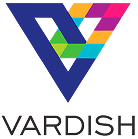08
Good Relations Ontology, Semantic Markup and how they help in SEO
Semantic search and semantic SEO

Semantic SEO is one step ahead of the SEO techniques of yesteryears. Semantic SEO is fairly new web marketing technique but is fast growing in conjunction with large scale SEO perhaps for the fact that it so ably combines the facets of SEO with semantic web technology and semantic search – which instead of using keywords as the core for search results, uses searcher’s intent and meaning of the query.
Semantic SEO therefore, besides the normal focus on the user’s keyword search and links also focuses on the user’s intent and meaning of the query to provide best results on search engines.
So, when it comes to semantic SEO it becomes all the more important for retailers, bloggers, news websites, video web pages, contact, product and medical data information providing website etc. to rethink their focus on vocabularies and syntax of the structured data to rank high on the search engines following the semantic search technique.
Good Relations Ontology
It is known that structured data is responsible in sending meaningful information of data on the webpage to the search engines and other data consumers in a way that is best understood by them. There are many vocabularies and syntax that actually make a much needed difference in the structured data, but the most important that also helps in semantic search and SEO is the GoodRelations ontology or schema.org markup in RDFa or Microdata syntax.
GoodRelations ontology or schema.org in RDFa or Microdata syntax are the most powerful and effective vocabulary and syntax that can be used to send rich description of all details of products and services of a webpage in a way best suited for search engines, web browsers, mobiles applications etc.
Therefore, its believe that if a GoodRelations is used in the markup on the website then search engines, mobile apps etc have a better chance of recognizing you in the search results, which can directly increase the number of users visiting your site from the search engines. This is the reason SEOs are beginning to utilize GoodRealtions ontology.
Semantic Markup
Vocabularies and syntax mentioned above for structured data can be summed up as semantic markup. Because semantic SEO involves inclusion of semantic markup in the web page to enhance meaning of the page and make it easily comprehendible to search engines, it becomes necessary to understand what is Semantic Markup?
Semantic markup is a way to assist search engines, browsers and apps to identify the information on a web page in a language that they can easily understand. Presently the most useful semantic markup formats are RDFa and Microdata, and semantic markup is best defined as using HTML tags, which offer every clean codes that are not only easy for humans to understand and right but also for the search engine algorithms to comprehend. A reason SEOs and developers love it and semantic search recognizes.

